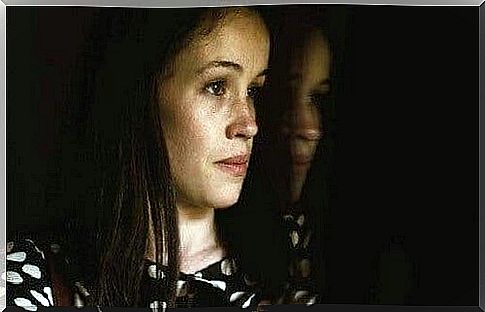Why Stay In A Relationship If You Are Psychologically Abused?

If you’re being psychologically abused and you’re unhappy, you may be asking yourself, “Why don’t I just get out of this relationship?” Outsiders often ask this question of people with partners who abuse them.
The answer to that question may be hidden behind a complicated web of factors. Fear, shame, indecision, confusion, and even love can keep someone in a toxic relationship.
Neuroscience often tells us that our brains are designed to promote social connections. That’s also why you build something that’s more than just commitment when you start a relationship with someone.
Your brain structures also get used to that connection. They begin to survive on your daily interactions. They rely on your affection for that person and on the intimacy you both share.
Therefore, it is common for people to minimize the impact of controlling behavior or abuse. The brain chooses not to process the reality of the damage.
They stubbornly try to maintain the connections because they assume that the truth can be terribly painful. Little by little, a sophisticated defense system obscures perception.
Psychological abuse is a very sophisticated trap. Therefore, you should not underestimate his influence by assuming that the victim is blind, naive or indecisive when they remain in an abusive relationship. After all, the controlling person uses tactics that are subtle and persistent. So it’s not easy to just get up and leave.

Why do you stay in a relationship if you are psychologically abused?
If you are psychologically abused, it will take you a long time to accept that reality. It is possible that the people around you have asked you how you can tolerate certain behaviors, actions or words.
Still, you tend to ignore comments like this. You believe that other people cannot see what you see in your partner. You may also often tell yourself that your partner is special and worth sticking with.
Day after day you will keep repeating this inner dialogue to yourself. However, one day you will realize that it just doesn’t make sense. At this point you will become aware of the trap you have fallen into. That moment can provoke unexpected feelings.
You may be aware of the abuse. However, it may happen that you do not have the strength to leave the relationship. That is because you will suddenly be filled with many fears.
Jacobson N, Gottman JM, and Gortner E conducted research on this very topic at the University of Washington. They showed that these situations can last an average of two to five years. Later in this article, we’ll discuss some of the reasons why it can be difficult to let go of these types of relationships.
Psychological “freezing”
Over time, psychological abuse has the same impact as trauma. This kind of abuse constantly damages self-confidence, dignity and self-image.
Ultimately, the victim suffers from the same symptoms that people in a stressful situation have experienced. Mentally, they feel drained. They suffer from headaches and may experience muscle aches and memory loss. Often all this can lead to a state of psychological “freezing”.
By this we mean that the abused person begins to dissociate from their emotions. They do this so as not to suffer. They want to avoid feeling pain. In turn, this increases the attacker’s motivation to keep doing them damage.

Abuse Tactics That Change How Someone Thinks
When we talk about psychological abuse, we often forget something. The abuser justifies his actions. They always use “love” as a basic means of holding power.
Any demands they use to control the victim as they wish they will justify out of their love for them. This false and double-edged affection will also always cause the abused partner to give in.
The person who is psychologically abused will use justifications, cognitive dissonance, and false beliefs to play their part in this dynamic.
Little by little, these manipulation techniques will change their way of thinking and even their personality. At times they will even believe that they are to blame for what is happening to them. Eventually they will then hate themselves and experience feelings such as shame and fear.
To rewrite your story you have to rebuild yourself
When you are psychologically abused, you have to reinvent yourself. After all, this abuse can leave you damaged, languishing or extremely vulnerable. That’s why you may find it so difficult to get out of the relationship.
To do this you will probably need some support. Experts recommend that you rely on reliable people and professionals. They are the people who will be able to help you rewrite and heal your story.
Psychological abuse may not leave visible scars. Yet it can erase many parts of your old self. It wipes out identities and changes your self-esteem. It also breaks down your self-confidence and destroys your values.
However, after being psychologically abused, you can rebuild yourself. You have to rely on your resilience. Then you will be able to do it. Your goal should be to become a stronger person who is ready to live a fuller life.
Even if you can’t forget your past, this relationship is only a small part of your story. It is something that does not have to determine your future. It doesn’t have to determine your ability to create happier memories in the future.









